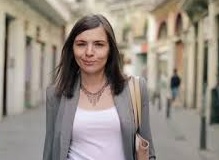Post 76 Journeys in Opposite Directions
In recent years I’ve started to rise early and go for a run before going to work. The exercise does me good and after a long soak in the shower, I feel invigorated and ready to face whatever challenges await me when I arrive at the surgery. Recently though I’ve moderated my physical activity as I’m four months pregnant and on this particular morning I was walking to the antenatal clinic.
It was when I was passing the shops in the High Street that I saw him. He was coming out of the newsagents; the morning paper in his hand. At least, I thought it was him, but he looked so much
older and frailer than before. He was wearing a formal suit and a tie, as he always did, but his jacket hung loosely from his shoulders. He’d clearly lost a lot of weight, lost the jaunty spring in his stride that I remembered so well, and he was jaundiced. I looked again. Yes, I was certain; it was him. It was the elderly physician who had been so kind, so helpful and caring when I’d had that little wobble in my final year at Medical School.
As we exchanged conventional greetings, I saw how ill he looked. The skin on his face was pinched over prominent cheek bones, his eyes sunk into shadowy sockets. And the yellow discolouration of his skin was not the pale daffodil yellow of hepatitis, but the deep muddy yellow of malignant jaundice.
After the brief, inevitable exchange about the weather, he said how pleased he was to see me looking so fit. He commented on the tan that I’d acquired on my recent walking holiday in Scotland, but as we
chatted, my mind was working overtime. Should I tell him that he was jaundiced? No, that would be ridiculous; it would be obvious to him every time he looked in the mirror, and with his vast experience, he couldn’t fail to be aware of the decline in his weight, health and energy.
He must have asked about my progress since leaving medical school for I found myself telling him about the GP surgery where I was a junior partner, yet even as I spoke I realised that for the jaundice to be so advanced, he must already have been investigated and a diagnosis reached.
I wondered if I should mention his obvious ill health, but felt that to do so would be unwelcome and inappropriate. As it happened, even if I’d had the courage to do so, I wouldn’t have had the opportunity because he swiftly shifted the conversation and was now enquiring after my family. As I told him about my pregnancy, my husband, young son and baby daughter, I wondered if his cancer lay in the liver, the pancreas or possibly in the bile duct. Looking at him though, it was clear that such details were irrelevant. He was undoubtedly terminally ill.
My mind flashed back to my student days. He was someone I had always respected; he was invariably polite, always the perfect gentleman. He had been the most patient, most considerate and supportive of all my tutors; his dedication to his students matching the wisdom, care and attention that he bestowed on his patients. How sad it was to see him in such dire straits.
The conversation came to an end and there was an awkward silence. I wanted to express my sympathy to him but couldn’t find the words.
‘Well, I must be getting along,’ he said, smiling. ‘My wife worries if I’m out for too long and she’ll be eager to read the paper and start on the crossword.’
Then, unknowingly, I found myself holding out my hand and speaking.
‘Sir,’ I said, ‘on behalf of all the students that you’ve taught over the years, I would like to thank you for all your help. If your students follow your example, a whole generation of future patients will be in your debt. And you’ve helped so many patients over the years, you’ve always been so kind and so generous with your time and, speaking personally, I’m grateful to you for your support when I was ill. Without you, I should not be where I am today.’
He shook my hand. ‘It was my pleasure,’ he said, ‘and if I really have helped a few young men and women to become good doctors, then my time on this earth will not have been wasted.’
He turned and we parted, each of us going on our separate journeys; me, conscious of the tears in my eyes, to the antenatal clinic to have
a scan of my unborn baby, he to meet his Maker.
That evening, when the children were safely tucked up in bed and my husband and I were relaxing in front of the television, I reflected on my chance meeting with my old tutor and became anxious about the rather personal comments I’d made as we parted.
‘I’m afraid it may have sounded awfully like a eulogy,’ I said.
‘Maybe it did,’ my husband replied, ‘but surely it’s so much better that he should hear your words in life. He won’t hear them if you save them for his funeral.’
For details of Peter’s novels and collections of short stories search Peter Sykes on Amazon Books
 Hello and Welcome
Hello and Welcome





Israeli Lawyer Moshe Strugano
ReplyDeletesays, I've started getting up early and going for a run before heading to work in recent years. After a lengthy bath in the shower and some exercise, I feel refreshed and ready to take on whatever challenges may be waiting for me at the operation. Though I've recently reduced my physical activity because I'm four months pregnant, I was strolling to the antenatal clinic on this specific morning.